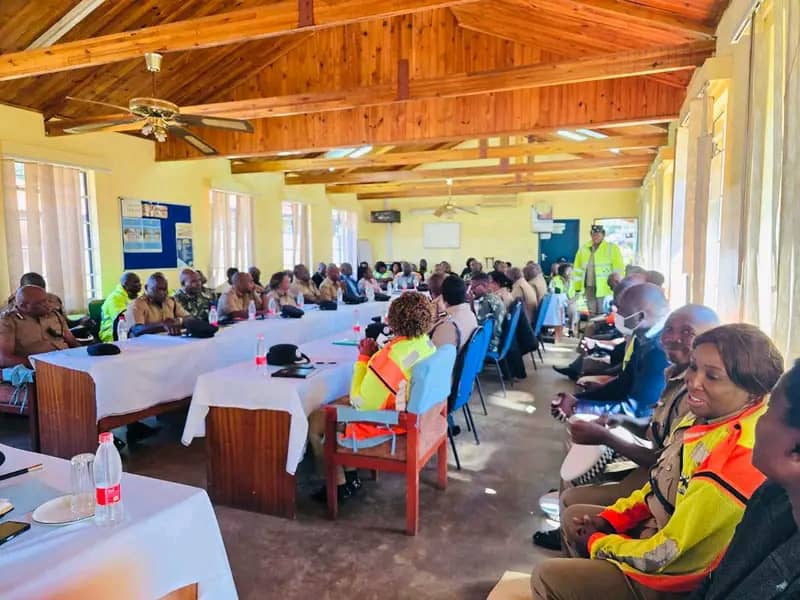By Burnett Munthali
Commissioner of Police for the Central West Region, Barbra Mchenga Tsiga, has sounded an alarm over the urgent need to intensify awareness campaigns to combat mob justice, suicide, and a host of other crimes destabilizing communities under her jurisdiction.
Speaking at the Central Region Training Centre during a high-level management meeting, Tsiga underscored the necessity of proactive engagement in addressing the rising tide of criminality. The meeting brought together officers-in-charge and their subordinates from a wide network of police stations and posts, making it a crucial platform for sharing insights and strategizing responses to regional crime trends.
She emphasized that community engagement must not be treated as a secondary component of crime prevention. Rather, it should be central to the Malawi Police Service’s operational philosophy, particularly through the revitalization and strengthening of community policing structures.
Commissioner Tsiga pointed to a disturbing surge in murder cases, noting that the Central West Region recorded 88 murders between January and April of this year, a sharp rise compared to the 66 cases registered during the same period last year. This trend, she said, is deeply troubling and demands immediate and coordinated action.
“Community policing is the backbone of crime prevention. We must build stronger partnerships with the people we serve if we are to restore public confidence and deter lawlessness,” she stated.
She further observed that the effectiveness of law enforcement efforts heavily relies on a well-informed and cooperative public. To this end, she called on all police units in the region to step up sensitization campaigns, particularly in rural and semi-urban areas where mob justice and suicides are often underreported or misunderstood.
The Commissioner also stressed the importance of creating safe platforms for citizens to report crimes and mental health issues without fear of stigma or retaliation.
Her concerns were echoed by Lilongwe Police Station Officer-in-Charge, Clement Gulo, who highlighted operational difficulties that undermine timely police intervention, particularly in remote communities. Gulo cited mobility challenges as a critical barrier in responding swiftly to incidents of mob justice, which often escalate rapidly and result in irreversible harm.
“Our officers are committed, but without adequate mobility, it becomes a struggle to reach far-flung areas in time. This gap is contributing to the persistence of vigilante-style justice,” Gulo said.
Both Tsiga and Gulo stressed the importance of inter-sectoral collaboration, appealing to government ministries, non-governmental organizations, religious leaders, and traditional authorities to work in unison with the police to curb these disturbing trends.
The management meeting concluded with a renewed commitment from law enforcement leaders to prioritize crime prevention through education, logistical strengthening, and public engagement strategies that align with the evolving security landscape of the region.
As the Central West Region grapples with rising crime rates, Commissioner Tsiga’s rallying call serves as both a warning and a roadmap—urging all stakeholders to act decisively before the violence spirals further out of control.




